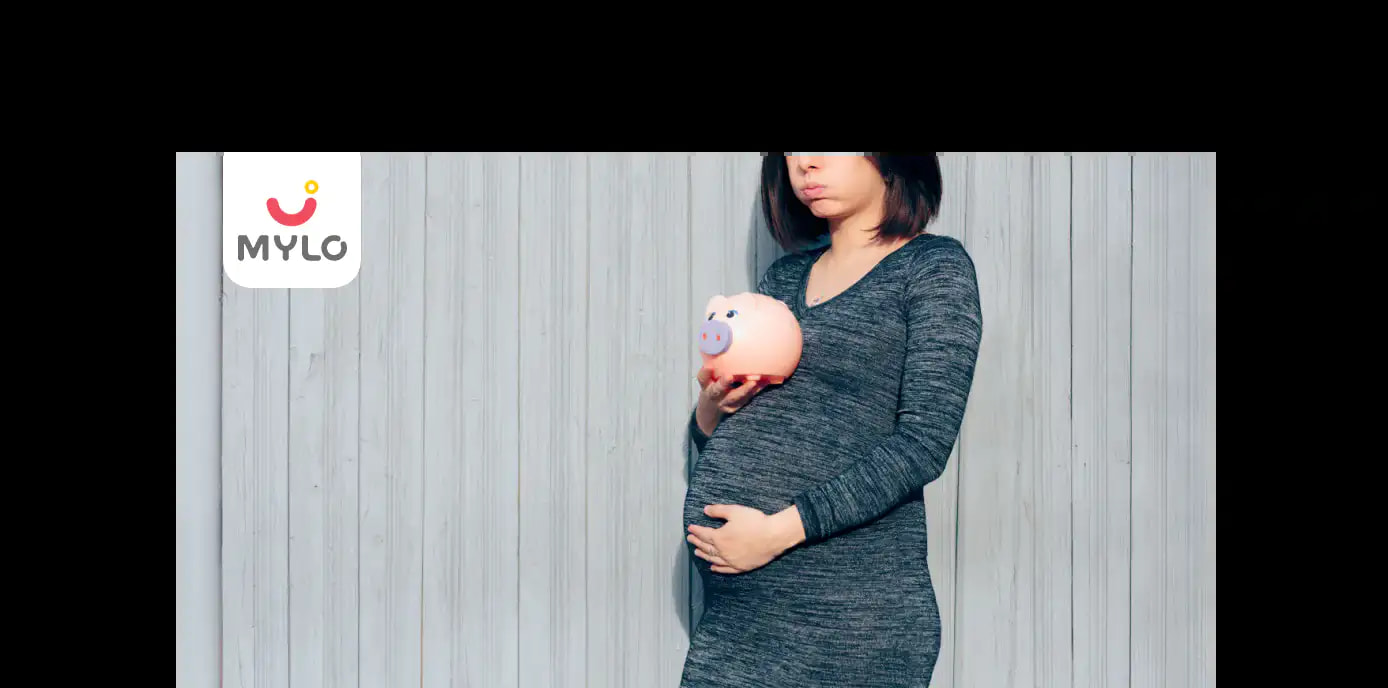Home

Paternity Leave: The Ultimate Guide to Rules, Rights and Benefits
In this Article

Baby Care
Paternity Leave: The Ultimate Guide to Rules, Rights and Benefits
Updated on 3 November 2023
As Raghav and Shambhavi entered the 40th week of their pregnancy, their excitement and nervousness were through the roof. From decorating the nursery to buying a beautiful cradle, Raghav wanted to do everything before his little one arrived. But amidst the joy of welcoming a new life into the world, Raghav kept thinking of the little time he would get to spend with his baby. A few days off work would just not be enough, and so, he wondered if he could claim a paternity leave.
Whether you’re an excited expecting Dad like Raghav or just curious to know your rights, join us on this comprehensive guide to understand paternity leave meaning, who all have a right to claim it, what are the rules you should know about and most importantly, the benefits. Shall we begin?
Paternity Leave Meaning
The meaning of paternity leave is time off from a job given to a father after a child is born. It is a type of leave that fathers and non-birthing parents can take to look after and bond with their new baby. It is an employee benefit granted to expectant husbands, partners of pregnant women, surrogate fathers, or a person matched with a child for adoption or foster care.
Who All Have a Right to Paternity Leave in India?
In India, the right to paternity leave is not limited to biological fathers but extends to adoptive fathers as well. The Maternity Benefit Act of 2017 introduced the provision for paternity leave, ensuring that fathers can also avail themselves of this important benefit. This means that both biological and adoptive fathers can take leave to be with their child and support their spouse or partner during the early stages of parenting.
How to Apply for Paternity Leave in India?
Applying for a paternity leave in India is a straightforward process. The first step is to inform the employer about the intention to avail paternity leave well in advance. This allows the employer to make necessary arrangements to ensure the smooth functioning of the workplace during the employee's absence.
The father also needs to provide relevant documentation, such as proof of birth or adoption, to validate the request for paternity leave. It is advisable to familiarize oneself with the specific policies and procedures of the organization regarding paternity leave to ensure a hassle-free application process.
What are the Paternity Leave Rules in India?
Before you avail a paternity leave, it’s important to be aware of the rules, which are as following:
1. According to the Paternity Benefit Act of 2017 in India, fathers are entitled to paternity leave of up to 15 days.
2. This leave can be availed within three months from the date of birth or adoption of the child.
3. The leave can be taken in one continuous stretch or in two separate periods, depending on the father's preference and the employer's policies.
4. The Act also mandates that the employer cannot terminate or discriminate against an employee for availing paternity leave.
5. The leave shall be considered lapsed if not availed. The employee will be paid a salary equal to the last pay.
6. The same rules apply when a child is adopted.
7. Paternity Leave in India is provided for employees belonging to the government sector.
8. However, the private sector in India is not obliged to provide paternity leave to male employees because there is no such law in India stipulating or mandating paternity leave for employees in the private sector.
Paternity Leave Policies in Different Companies
Even though private companies are not mandated to provide paternity leave for their male employees, several companies do provide paternity leave, according to their policies. A few such companies are:
1. SAS India
The company provides paternity leave not exceeding 2 weeks for its male employees
2. Interglobe Enterprises
provides paternity leave of up to 5 days and will need to be availed within 30 days of the delivery of the child.
3. Volvo Group
provides three calendar weeks of paternity leave for legally married male employees.
4. Tata Starbucks
provides a leave for fifteen working days, which may be extended to 26 weeks if the father is the primary caregiver.
5. Diageo India
is known to offer 4 weeks of paternity leave.
6. Zomato
is one of India's only companies to provide paternity leave that is on par with maternity leave. The company offers 26 weeks of paternity leave to new fathers.
7. Netflix India
offers lengthy paternity leave, which ranges from 4 months to 8 months.
8. Facebook
offers 8 weeks (2 months) of paternity leave to its male employees.
9. Microsoft India
offers 6 weeks of paternity leave.
10. Ikea India
also offers paternity leave that is on par with maternity leave. The company offers 6 months of paternity and maternity leave.
11. Salesforce India
provides a three-month leave for new fathers who are secondary caregivers.
12. Goldman Sachs
offers 6 weeks of leave for new fathers.
13. Jupiter Networks India
offers a leave that can be availed within 2 years of childbirth. The leave period ranges from 8 days to 16 weeks.
14. Mondolez India
provides a paternity leave for new fathers of up to 10 days. However, the leave can be extended to 6 months if the father is the primary caregiver.
15. TVS Motors
offers 6 days of leave which can be availed any time before or after childbirth.
16. Cummins India
offers one month of paternity leave.
17. PepsiCo. India
provides twelve weeks of parental leave.
What are the Benefits of a Paternity Leave?
Now that we know paternity leave rules, let us see what are some of the benefits of a paternity leave:
1. Bonding with the baby
Paternity leave allows fathers, non-birthing parents, and secondary caregivers to spend quality time bonding with their newborn baby. This early bonding experience can have a positive impact on the parent-child relationship.
2. Shared responsibility
Paternity leave promotes the idea of shared responsibility in parenting. It allows fathers to actively participate in childcare and housework, contributing to a more equitable division of labor within the family.
3. Support for the partner
Paternity leave provides an opportunity for fathers to support their partners during the postpartum period. They can assist with tasks such as feeding, changing diapers, and soothing the baby, easing the burden on the mother.
4. Emotional well-being
Taking time off work to be with their newborn can contribute to the emotional well-being of fathers. It allows them to experience the joys and challenges of early parenthood firsthand, fostering a deeper sense of connection and fulfillment.
5. Skill development
Paternity leave offers fathers the chance to develop essential parenting skills. They can learn how to care for their child's basic needs, navigate challenges, and develop a nurturing and supportive environment for their baby's growth and development.
6. Gender equality
By encouraging fathers to take paternity leave, it promotes gender equality in the workplace and society. It challenges traditional gender roles and stereotypes, highlighting the importance of both parents' involvement in raising a child.
7. Positive impact on workplace culture
Embracing paternity leave can create a more supportive and inclusive workplace culture. It signals that the company values work-life balance and recognizes the importance of family, contributing to higher employee satisfaction, retention, and productivity.
Conclusion
Paternity leave is a significant step towards recognizing the importance of fathers in a child's life and promoting gender equality in parenting. It allows fathers to be actively involved in the early stages of their child's development and supports their partners during the postpartum period. By understanding the rules, rights, and benefits associated with paternity leave in India, fathers can make informed decisions and create a strong foundation for their growing family.



Written by
Charu Pratap
Charu has been a seasoned corporate professional with over a decade of experience in Human Resource Management. She has managed the HR function for start-ups as well as established companies. But aside from her corporate career she was always fond of doing things with a creative streak. She enjoys gardening and writing and is an experienced content expert and linguist. Her own experiences with motherhood and raising a baby made her realize the importance of reliable and fact-based parenting information. She was engaged in creating content for publishing houses, research scholars, corporates as well as for her own blog.
Read MoreGet baby's diet chart, and growth tips

Related Articles
Related Topics
RECENTLY PUBLISHED ARTICLES
our most recent articles

Diet & Nutrition
গর্ভাবস্থায় আলুবোখরা: উপকারিতা ও ঝুঁকি | Prunes During Pregnancy: Benefits & Risks in Bengali

Diet & Nutrition
গর্ভাবস্থায় হিং | ঝুঁকি, সুবিধা এবং অন্যান্য চিকিৎসা | Hing During Pregnancy | Risks, Benefits & Other Treatments in Bengali

Women Specific Issues
স্তনের উপর সাদা দাগ: লক্ষণ, কারণ এবং চিকিৎসা | White Spots on Nipple: Causes, Symptoms, and Treatments in Bengali

Diet & Nutrition
গর্ভাবস্থায় পোহা: উপকারিতা, ধরণ এবং রেসিপি | Poha During Pregnancy: Benefits, Types & Recipes in Bengali

Diet & Nutrition
গর্ভাবস্থায় মাছ: উপকারিতা এবং ঝুঁকি | Fish In Pregnancy: Benefits and Risks in Bengali

Diet & Nutrition
গর্ভাবস্থায় রেড ওয়াইন: পার্শ্ব প্রতিক্রিয়া এবং নির্দেশিকা | Red Wine During Pregnancy: Side Effects & Guidelines in Bengali
- ইনার থাই চ্যাফিং: কারণ, উপসর্গ এবং চিকিৎসা | Inner Thigh Chafing: Causes, Symptoms & Treatment in Bengali
- গর্ভাবস্থায় ব্রাউন রাইস: উপকারিতা ও সতর্কতা | Brown Rice During Pregnancy: Benefits & Precautions in Bengali
- Velamentous Cord Insertion - Precautions, Results & Safety
- Unlock the Secret to Flawless Skin: 7 Must-Have Qualities in a Face Serum
- Unlock the Secret to Radiant Skin: How Vitamin C Serum Can Transform Your Complexion
- Gender No Bar: 10 Reasons Why Everyone Needs a Body Lotion
- Unlock the Secret to Radiant Skin How to Choose the Perfect Body Lotion for Your Skin Type
- Top 10 Reasons to Apply a Body Lotion After Every Bath
- Communication in Toddlers: Milestones & Activities
- How to Improve Vocabulary for Toddlers?
- A Comprehensive Guide to Understanding Placenta Accreta
- Vulvovaginitis in Toddlers Causes, Symptoms and Treatment
- A Comprehensive Guide to Understanding Cerebral Palsy in Children
- Bitter Taste in Mouth During Pregnancy: Understanding the Causes and Remedies


AWARDS AND RECOGNITION

Mylo wins Forbes D2C Disruptor award

Mylo wins The Economic Times Promising Brands 2022
AS SEEN IN

- Mylo Care: Effective and science-backed personal care and wellness solutions for a joyful you.
- Mylo Baby: Science-backed, gentle and effective personal care & hygiene range for your little one.
- Mylo Community: Trusted and empathetic community of 10mn+ parents and experts.
Product Categories
baby carrier | baby soap | baby wipes | stretch marks cream | baby cream | baby shampoo | baby massage oil | baby hair oil | stretch marks oil | baby body wash | baby powder | baby lotion | diaper rash cream | newborn diapers | teether | baby kajal | baby diapers | cloth diapers |








